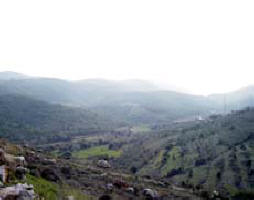 Information Products for Decisions on Water Policy and Water Resources Management in the Nile Basin
Information Products for Decisions on Water Policy and Water Resources Management in the Nile Basin
With the rising water scarcity concerns within the Nile River Basin, it is becoming increasingly important to ensure that water resources are used effectively to meet agreed socio-economic goals.
Ten countries share the waters of the Nile. The basin is home to some 180 million people and the Nile states are characterized by high population growth and considerable development challenges.
The project “Information Products for Nile Basin Water Resources Management” is intended to strengthen the ability of the governments of the ten Nile countries to take informed decisions with regard to water resources policy and management in the Nile basin. A thorough understanding of the state of the Nile resource, and the current use and productivity of its waters, will enable decision makers to better assess trade-offs and implications of shared-vision development scenarios.
The project is supported by the Government of Italy and carried out under the umbrella of the Nile Basin Initiative, of which Italy is a full partner. It is implemented by the ten Nile riparians with technical and operational assistance of the Food and Agriculture Organization of the United Nations (FAO). It has a budget of US$ 5 million, bringing the total contribution since 1996 of the Government of Italy to the Nile process to over US$ 16 million.
The project will make extensive use of regional expertise. It will also draw on the specific experience and knowledge residing at FAO, especially in the fields of agricultural water use and water productivity.
--
FAO
| Project number | n/a | ||
|---|---|---|---|
| Subject(s) | HYDRAULICS - HYDROLOGY , INFORMATION - COMPUTER SCIENCES , MEASUREMENTS AND INSTRUMENTATION , METHTODOLOGY - STATISTICS - DECISION AID , POLICY-WATER POLICY AND WATER MANAGEMENT , RISKS AND CLIMATOLOGY , WATER DEMAND | ||
| Geographical coverage | Egypt, Italy, NILE countries | ||
| Budget (in €) | 0 | ||
| Programme | The Nile Basin Initiative | ||
| Web site | http://www.faonile.org/ | ||
| Objectives | Build capacity for developing information products that integrate technical water resources data with socio-economic and environmental information. The aim is to present and illustrate general issues and trends concerned with the availability, allocation and use, and development potential of the shared Nile resource as cartographic products. This activity is building on the geographical information system (GIS) technology already established in the region.
Within this context, a basin wide survey is conducted to assess current and potential water use and water productivity in rainfed and irrigated agriculture. A further case study concerns the analysis and improvement of water productivity through crop management. To estimate future agricultural water use, scenarios are developed for demand of agricultural produce in the Nile Basin in 2030.
A communication strategy has been developed to increase awareness among government officials, local stakeholders and the public about the use of the Nile system as a shared resource.
Limited activities are implemented to extend the transboundary hydro-meteorological monitoring network, and to finalize the ongoing database quality control exercise. The project has also consolidated the Nile Decision Support Tool (Nile DST), developed in the previous project, through the implementation of a limited training program.
|
||
| Results | Expected Outputs A strongly enhanced information base, both at the national and basin level, for assessing basin-wide development and cooperation options, and for managing competing water demands from different societal sectors. Substantially improved government capacity in the Nile Basin States to analyze the trade-offs of cross-sectoral and basin-wide development and cooperation scenarios. At the national level this will translate in an enhanced ability to achieve allocation of the scarce water resource that is effective, perceived as equitable and fair, and that fosters rural development and poverty alleviation. A strengthened common knowledge base, shared among all Nile riparians, regarding Nile water resources issues ranging from water availability, current and future water demands, development potential, and management and cooperation options. |
||
| Period | [01/12/2004 - 31/12/2008] | ||
 you are not logged in
you are not logged in





